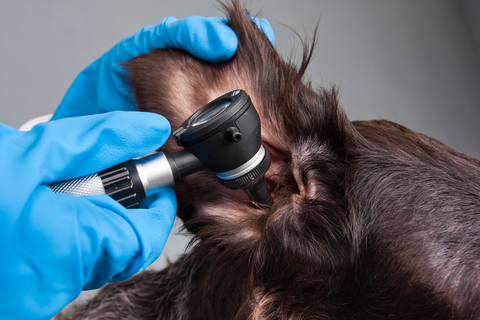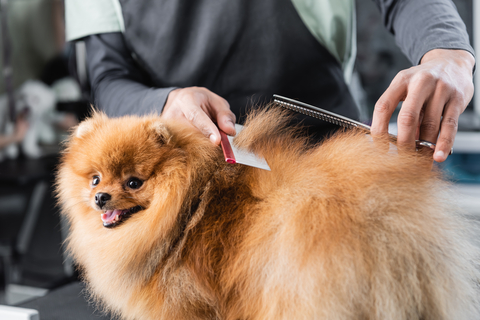At Animalcare Veterinary Hospital, we offer a variety of important diagnostic procedures for your pet. Sometimes, in order to determine exactly what is wrong with the patient, a more intensive examination may be required that may involve laboratory tests of blood or other specimens, x-rays of specific body parts or ultrasonography. Our animal hospital can use these procedures to make a better diagnosis, and give your pet the correct treatment they need to get better.
IN-HOUSE LABORATORY
We have at our 2 locations, a complete in-house blood analyser laboratory, allowing us to run blood samples and obtain results in the clinic in less than an hour. The ability to obtain lab results the same day is especially valuable for very sick animals or those requiring anaesthesia for unplanned emergency surgery. Depending on the results of the blood work changes may have to be made to the standard general anaesthetic protocol and in some cases, surgery has to be performed only under local anaesthesia. Blood work is also a routine part of a diagnostic work up, and helps the veterinarian provide your animal with the best treatment options and care. We also send swab and tissue samples to our sister ISO 17025-accredited microbiology laboratory for analysis and for more specialized tests we are also able to send samples to overseas veterinary reference laboratories.
IMAGING
Ultrasounds and radiographs (x-rays) are some of the most useful diagnostic tools in veterinary medicine. Both tools allow veterinarians to get information about your pet’s internal organs without surgery or any pain. Our veterinarians have received special training to interpret the images taken from radiographs and ultrasounds in order to properly diagnose your pet. Ultrasound is often considered more exact than radiographs because it provides a movie of internal movement instead of still pictures. The imaging modality for diagnosing gastrointestinal disease and disorders is endoscopy.
Ultrasounds are often used to examine soft tissue and are most often used to detect:
- Cancers and other forms of tissue proliferation
- Endocrine dysfunction
- Pregnancies
- Fluids and cysts
- Bladder stones
To perform an ultrasound a sonographer applies gel to a certain area on your pet. A handheld tool called a transducer is moved in the gel strategically over the body part. This transducer produces sound waves that echo and reveal what is at that site. The images are shown on a monitor that is connected to the transducer.
X-rays can be used to identify:
- Fractures (broken bones)
- Arthritis
- Spinal cord disease
- Bladder stones
- Hip dysplasia
X-rays use a small amount of radiation to capture images as it passes through your pet. The amount of radiation is so small that it poses no risk to your pet even after multiple exposures. The three most common types of X-rays are abdominal, chest and orthopaedic. At Animalcare Veterinary Hospital we employ digital radiography to provide our patients with an advanced, non-invasive diagnostic tool and to streamline the image-taking process and gather high quality images with a level of detail not afforded by standard film.
Endoscopy
Veterinary endoscopy aids in the diagnosis and treatment of problems occurring in the upper and lower gastrointestinal tracts. The endoscope is a long flexible tube with a light and camera at the end. The endoscope is inserted into the body through an opening such as the mouth or anus. An endoscope allows a more complete examination of the oesophagus, stomach, and some areas of the intestines in order to diagnose gastrointestinal disorders, cancerous growths, polyps, and other problems. The endoscope is also useful in obtaining samples of potentially infected or cancerous material and serves as the visual aid during a biopsy, allowing the doctor to obtain the best sample for evaluation. This helps diagnose malignancies in the gastrointestinal tract as well as gastrointestinal disorders like Inflammatory Bowel Disease.
ELECTROCARDIOGRAPHY
Electrocardiographs (ECG) are snapshots of how your pet’s heart functions. These are very helpful at detecting numerous types of arrhythmias as well as a handful of other cardiac conditions that can be difficult to identify through a stethoscope. You probably have seen an ECG machine, also known as an EKG machine, or have had one of these tests in your doctor’s office as they are commonly used to test for and diagnose common heart conditions in humans. An ECG test is a non-invasive procedure that involves simply connecting four electrodes to your pet’s skin. The machine will read the electrical impulses coming from the heart as the heart contracts and provide a graph for your veterinarian to read. If we notice any abnormalities, we will explain them to you and advise you on the next steps.



